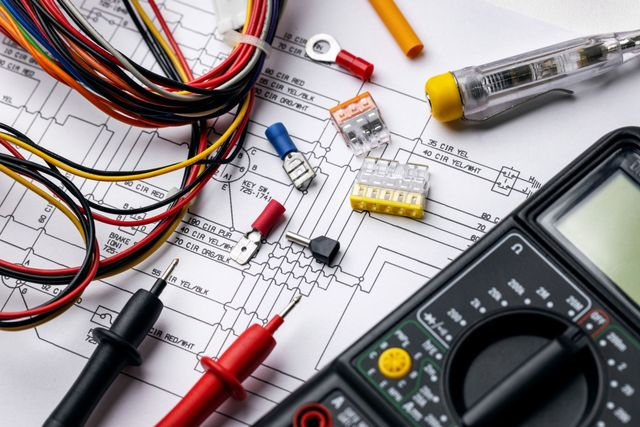Businesses of all sizes rely on a stable and efficient electrical system to operate smoothly. However, electrical challenges are a common occurrence, ranging from minor inconveniences to major disruptions that can impact productivity and profitability. Recognizing and addressing these issues promptly is crucial for maintaining a safe and efficient workplace. From outdated wiring to power surges, businesses must be prepared to tackle a variety of electrical hurdles. One of the most frequent challenges businesses face is outdated or inadequate wiring. As businesses grow and technology advances, electrical demands increase. Older buildings, in particular, may struggle to support modern equipment and power requirements. Overloaded circuits, flickering lights, and frequent breaker trips are telltale signs of inadequate wiring. Upgrading electrical systems to meet current demands is essential for preventing safety hazards and ensuring reliable power distribution. A qualified electrician can assess the current system and recommend necessary upgrades. Power surges and fluctuations are another common electrical problem that can damage sensitive electronic equipment and disrupt operations. These surges can be caused by various factors, including lightning strikes, faulty wiring, or problems with the power grid. Implementing surge protection devices, such as surge protectors and UPS systems, is crucial for safeguarding valuable equipment and preventing data loss. Regular maintenance and inspections of electrical systems can also help identify and address potential sources of power fluctuations. Lighting issues can also pose significant challenges for businesses. Inefficient lighting can lead to increased energy costs and reduced productivity. Flickering lights, burned-out bulbs, and inadequate lighting levels can create a distracting and uncomfortable work environment. Upgrading to energy-efficient LED lighting can significantly reduce energy consumption and improve lighting quality. Implementing lighting controls, such as motion sensors and timers, can further optimize energy usage and reduce costs. Electrical safety is paramount for any business. Faulty wiring, overloaded circuits, and improper grounding can create serious safety hazards, including electrical shocks and fires. Regular electrical inspections and maintenance are essential for identifying and addressing potential safety risks. Educating employees on electrical safety procedures and providing access to safety equipment, such as fire extinguishers and first-aid kits, is also crucial for preventing accidents. Finally, businesses often face challenges related to backup power and emergency preparedness. Power outages can occur unexpectedly, disrupting operations and causing significant financial losses. Implementing backup power systems, such as generators or UPS systems, is essential for maintaining critical operations during power outages. Regular testing and maintenance of backup power systems are also crucial for ensuring their reliability. By proactively addressing these common electrical challenges, businesses can minimize disruptions, improve safety, and ensure the smooth operation of their facilities.
Addressing Common Electrical Challenges Faced by Businesses
Businesses must address common electrical challenges like outdated wiring, power surges, lighting issues, safety hazards, and power outages through upgrades, protection, maintenance, and preparedness to ensure smooth and safe operations.

